Developing a software product is no child’s play. As it may seem like a single product, a properly functional and final product is often an amalgamation of various programs. Although all of these work perfectly fine independently, they might run into some errors or pitfalls upon integration into the final product. Therefore, it is essential to check all of them together as well. This is done using integration testing.
It is the step of automation testing when individual and separate modules are combined and tested together, thereby assessing their interaction with each other. This generally is done before the validation and verifying stage but after unit testing.
Integration testing can eliminate some serious errors and bugs from the final product as some of the anomalies arise because of poor integration of separate modules of the software. Therefore, it is often carried out again after temporal modifications or changes in the code of the program. To achieve the whole process of integration testing efficiently and in time, automated integration test tools available for the same can be leveraged.
Best Integration Testing Tools
1. Citrus Framework
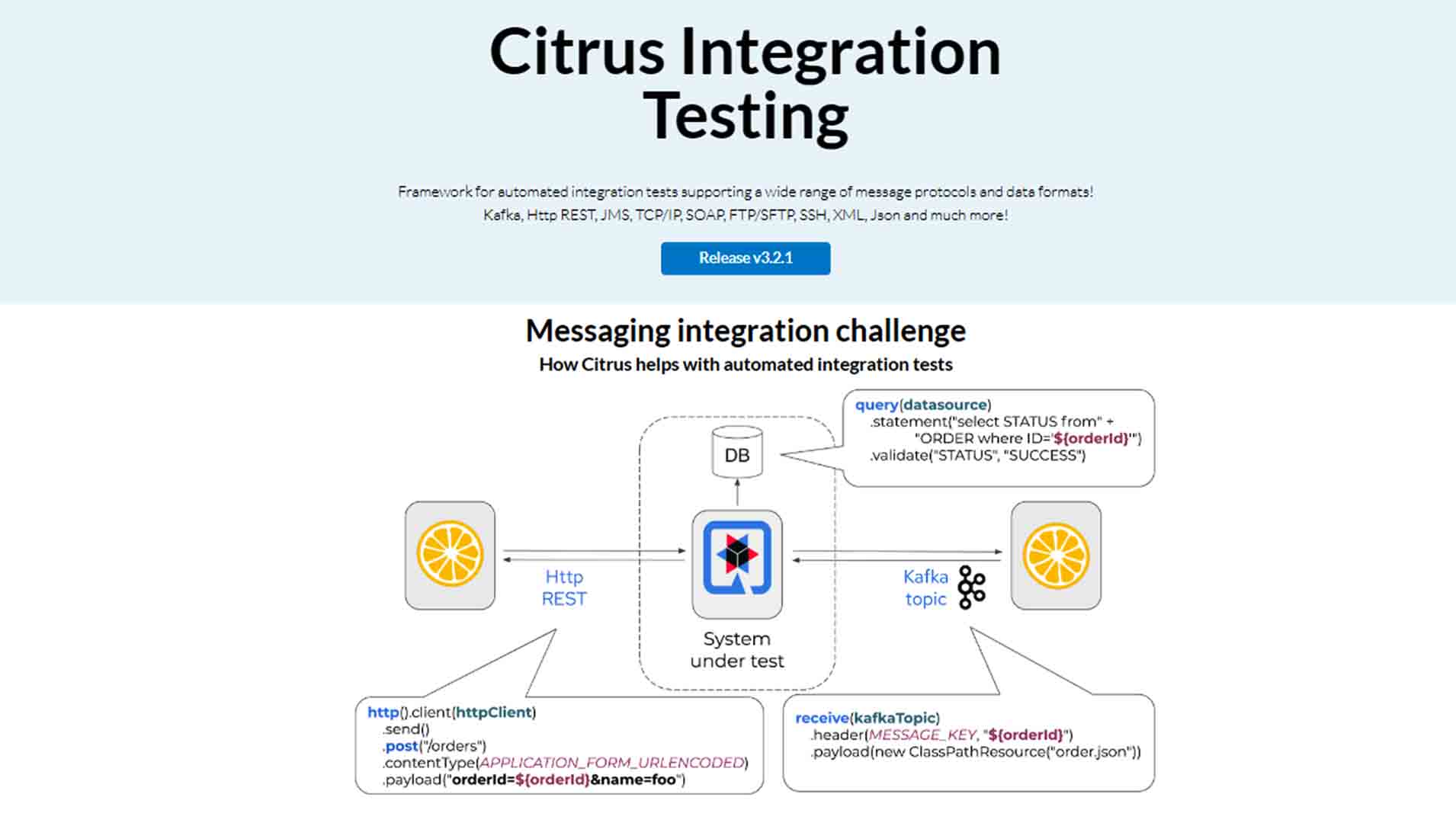
It is an integration testing tool with an efficient and reliable structure to perform tests for checking the proper integration of software modules. Citrus Framework is an open-source integration test framework licensed under Apache License 2.0. It is written in Java, which elevates its automation in data formats and message-based applications.
Benefits:
- It can validate for XML, JSON and plain text messaging requests and response data.
- Can effectively act both on the client-side and severe-side for the stimulation of request and response messages.
- Can efficiently and rapidly set the sequence of messages.
- Incorporated with message header validation.
- It can form error messages.
- It can wait for the message and can also trigger the other messages in the system.
- Can validate the existence of the data.
- It can rapidly test complex message scenarios with a defined series of operations.
- Groovy JSON validation.
- Database access/validation.
- Allows easy addition of integration tests to existing builds.
Citrus Framework is specifically designed for automation integration testing for data formats and message protocols.
2. SITA: Smart Integration Test Accelerator
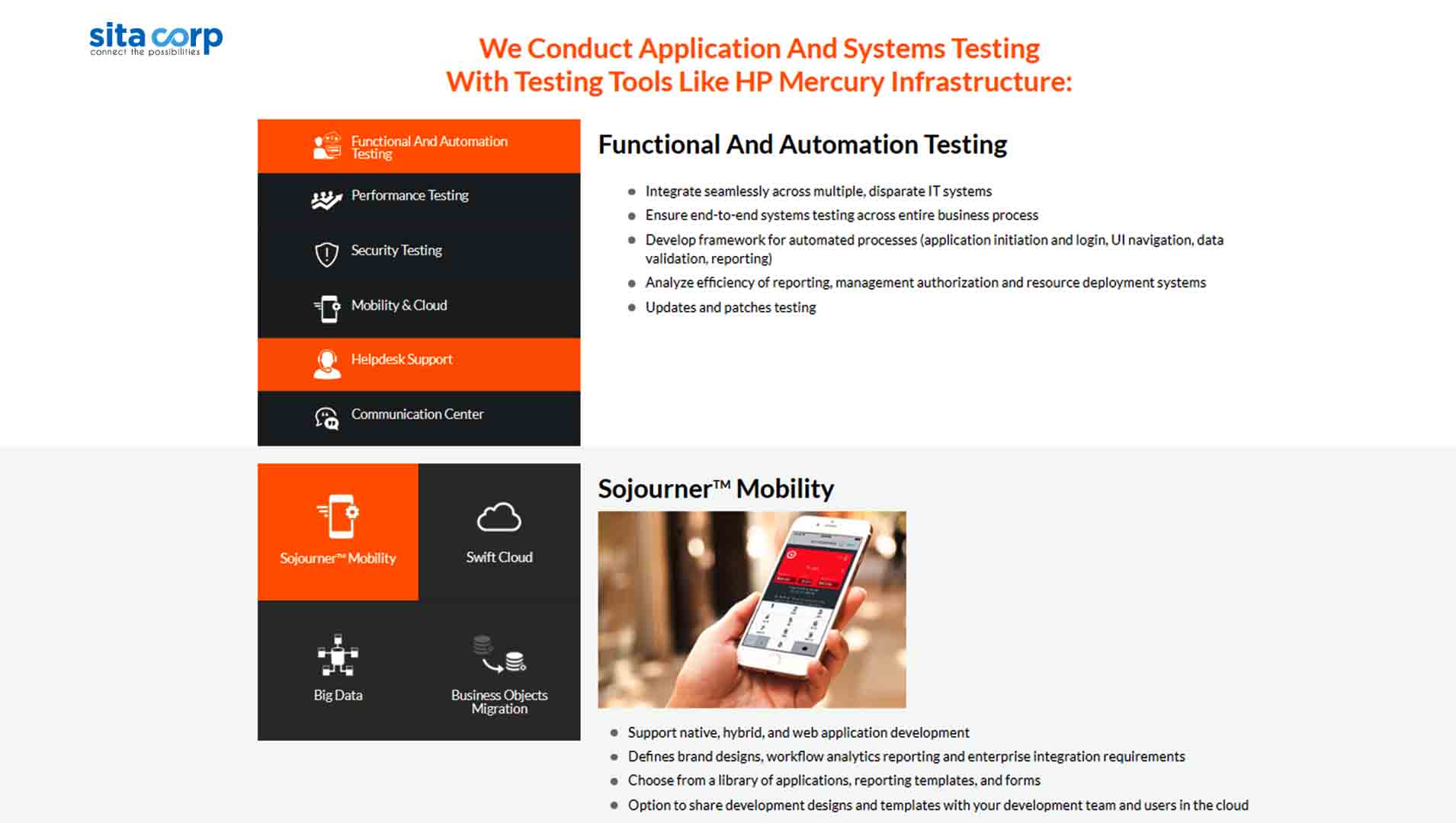
SITA is designed in such a way as to overcome the challenges and limitations of software testing. Owned by Wipro, SITA has a business-oriented approach and provides scalability and increased coverage for integration testing. This accelerates the whole process of test data generation and test designing with automation.
The whole integration testing, once implemented through SITA, mitigates the defects and anomalies in the production or UAT process. It can efficiently reuse the test cases and test data, thereby establishing cost-effective solutions. The reduced cost with superior quality is SITA's key asset.
On the other hand, SITA proposes no stringent limitations on integration with other tools. It can seamlessly integrate with HP ALM, IBM Rational, etc. A 30-day free trial is available to understand the software testing platform in detail.
3. FitNesse
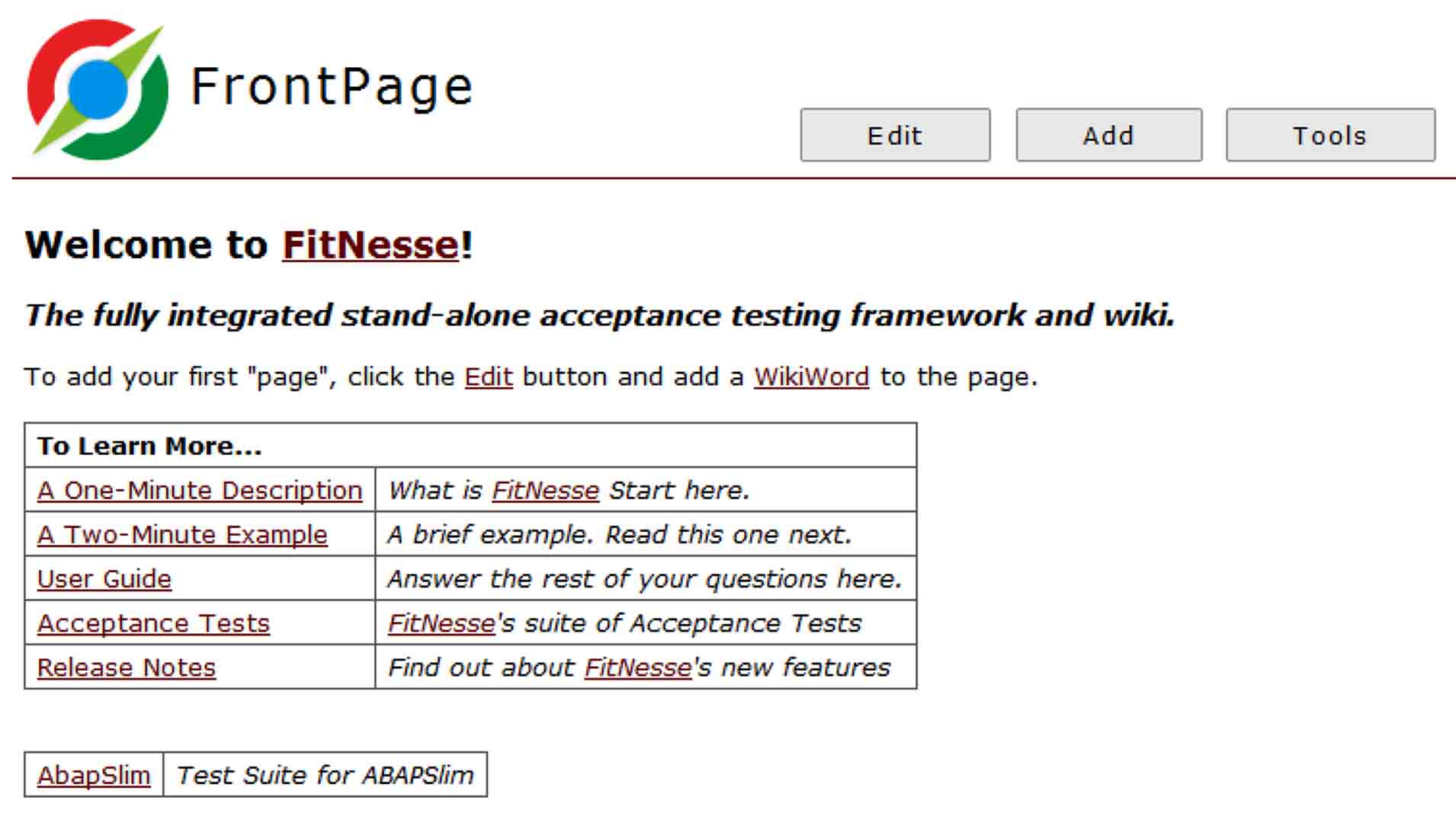
The next name on our list of the best integration testing tools is FitNesse. It is an efficient testing tool for integration testing. FitNesse is a free and open-source tool trusted by many developers and software testers.
Benefits:
- It does not need to be installed separately.
- Comes in a jar file.
- Easy to use.
- Easy and quick to set up.
- It allows easy validation of requirements with the software implementation process.
- Easily gets integrated with usual software testing tools.
- Extremely adaptable
- Useful in Web/GUI tests also.
Besides Java, FitNesse provides support for a wide range of programming languages, including C# and Python .
4. VectorCAST/Ada
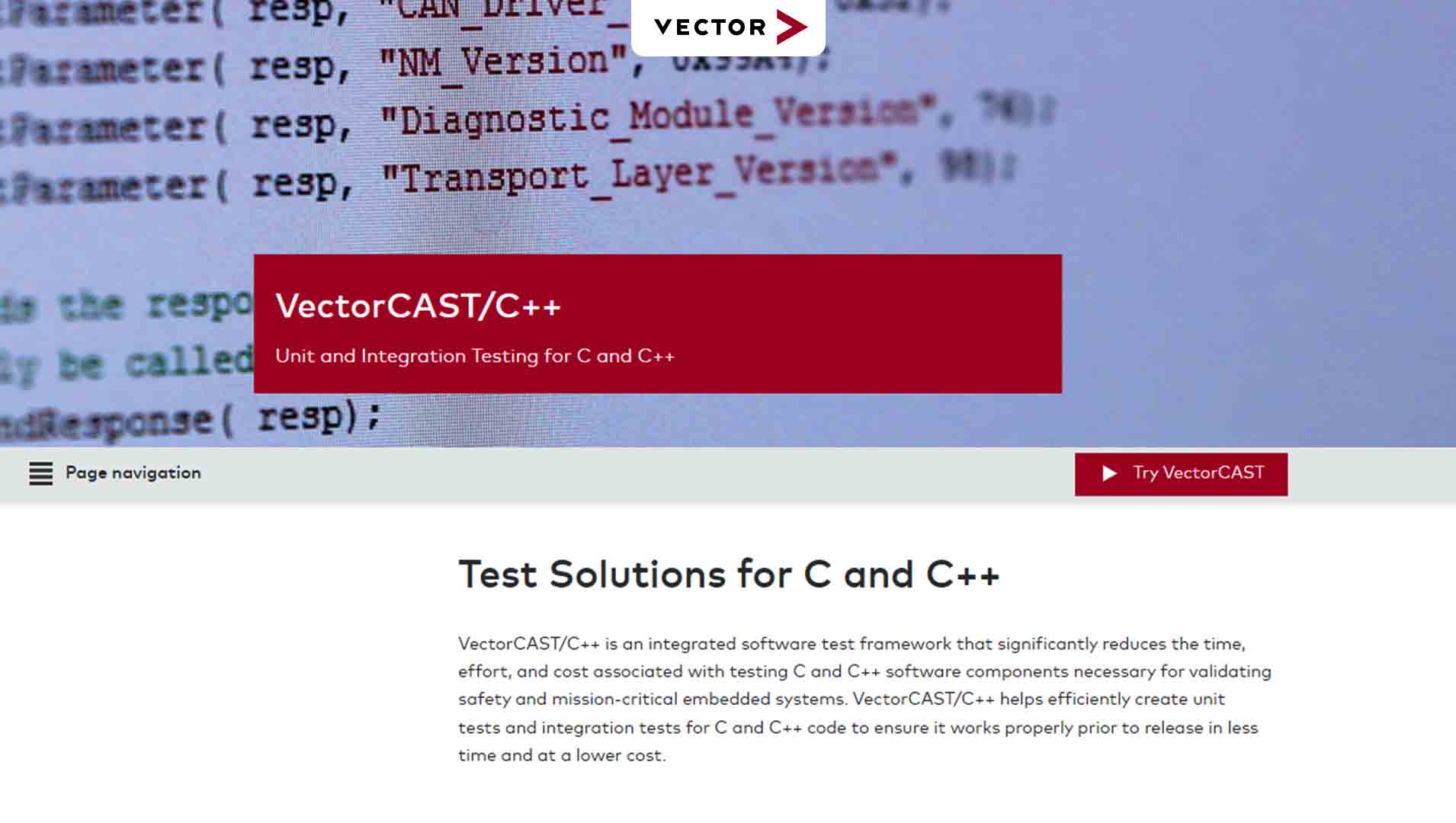
VectorCAST/Ada is from Vector Software and is extensively used by developers and programmers working and developing Ada projects. It works as an automated software integration testing solution, which can also perform unit testing. VectorCAST/Ada can also be used for validating the security and safety of critical embedded systems. It can run tests for unit testing by using local or target simulators.
The testing tool works by creating code from individual components or modules. Further, drivers are used to stimulating the specific functions of the code under test. Its easy integration with a wide range of tools, such as Green Hills and IBM Rational , has made it well popular among novice and maven software analysts.
Moreover, its efficient code generator has made the process of creating stubs and drivers rapid. Throughout testing, VectorCAST/Ada can highlight the high-risk code with the aid of its code complexity analysis. The software integration testing tool is also a multi-tasker as it can use existing test cases for automated regression testing as well. It allows developers to run integration testing collaboratively and continuously.
5. VectorCAST/C++
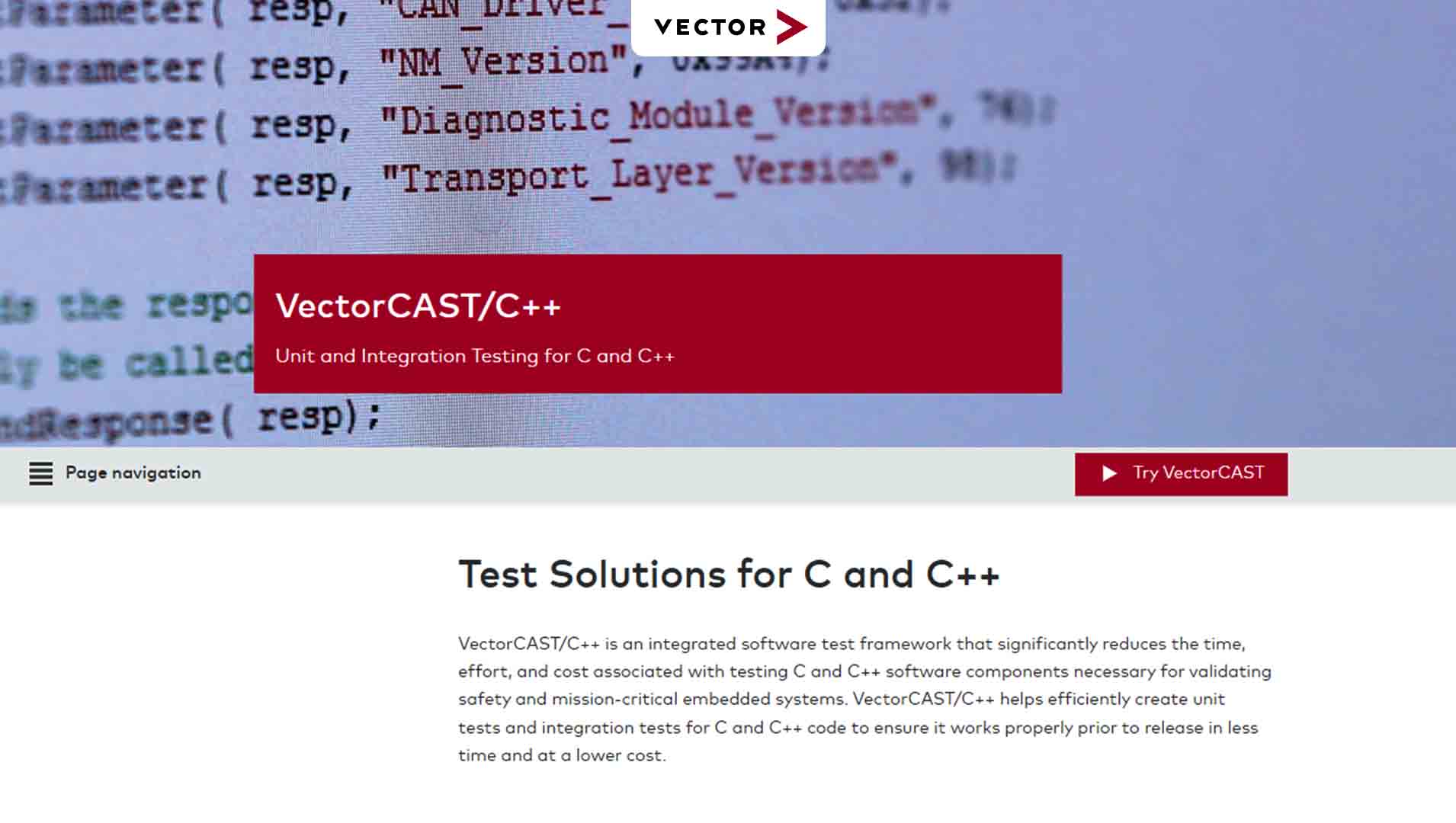
Another one from Vector Software, VectorCAST/C++, is known for efficiently running tests for unit testing and integration testing. It checks modules for proper functionality and also scans for any possible anomalies or bugs. VectorCAST/C++ is widely adopted by developers and programmers working with the C++ programming language. It also streamlines and manages the whole testing process of integration testing.
Not only testing, but it can also validate the safety and business-critical embedded systems. It is a dynamic solution for integration testing and mitigates any associated risk. VectorCAST/C++ saves time with optimum delivery of accuracy and precision. It provides results with increased coverage.
6. Protractor
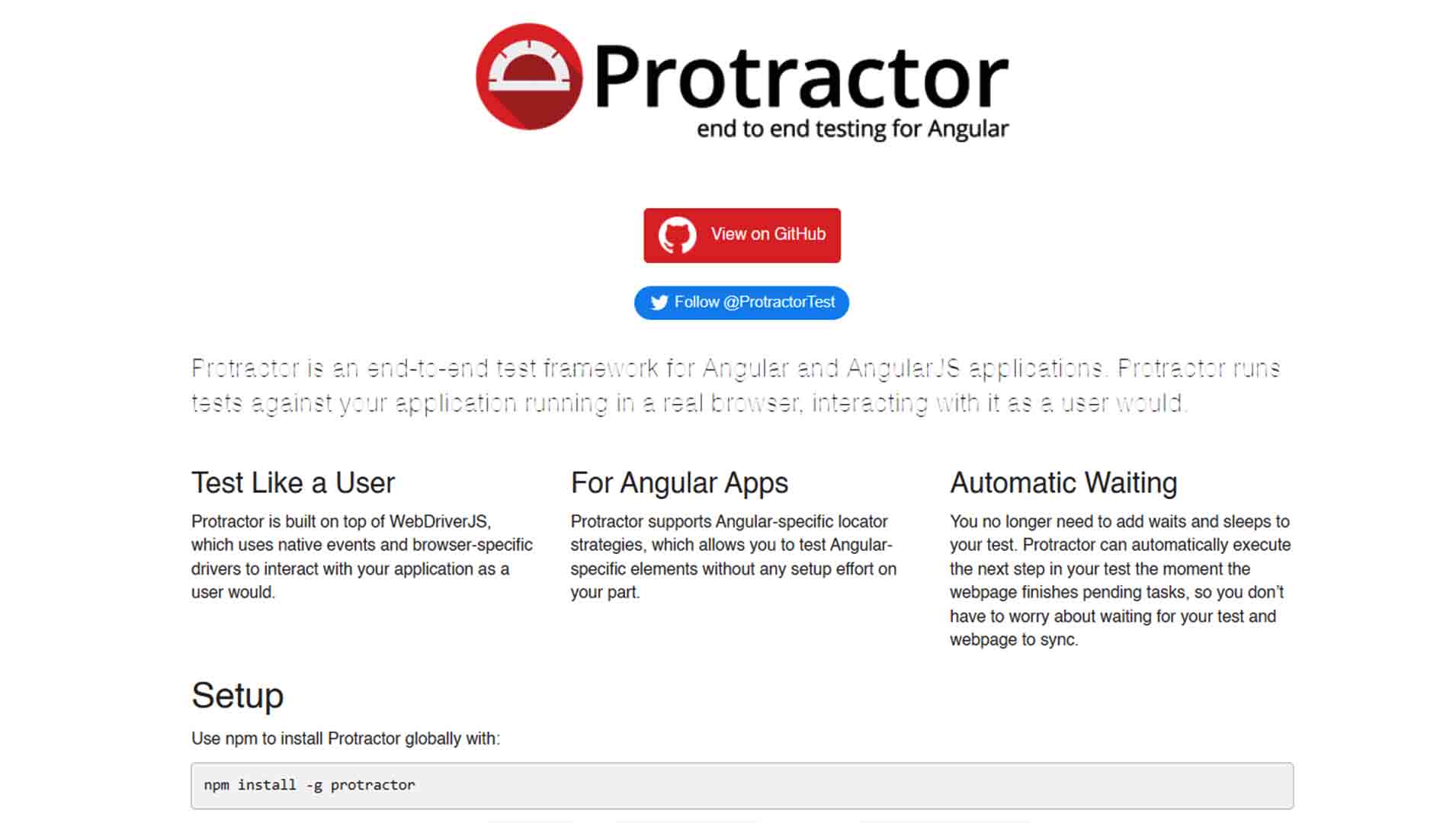
Also known as the E2E Testing Framework, Protractor is used and preferred by developers and programmers for running integration testing for Angular and Angular JS applications or software. It is an open-source automation framework elevating the level of efficient automation.
Benefits:
- Built on top of WebDriver JS.
- It uses specific drivers and native browsers for interacting with the software.
- Can be used to write end-to-end tests.
- It can run tests from the end-users point of view, thereby exhibiting an advantage over other available integration testing tools.
- Eliminates the need to add waits or sleeps in the test; hence, automating waiting.
- Protractor 5 is compatible with Node.js v6 and newer.
To configure Protractor on a system, one needs to have Node.js configured with a version above v0.10.0.
7. TESSY
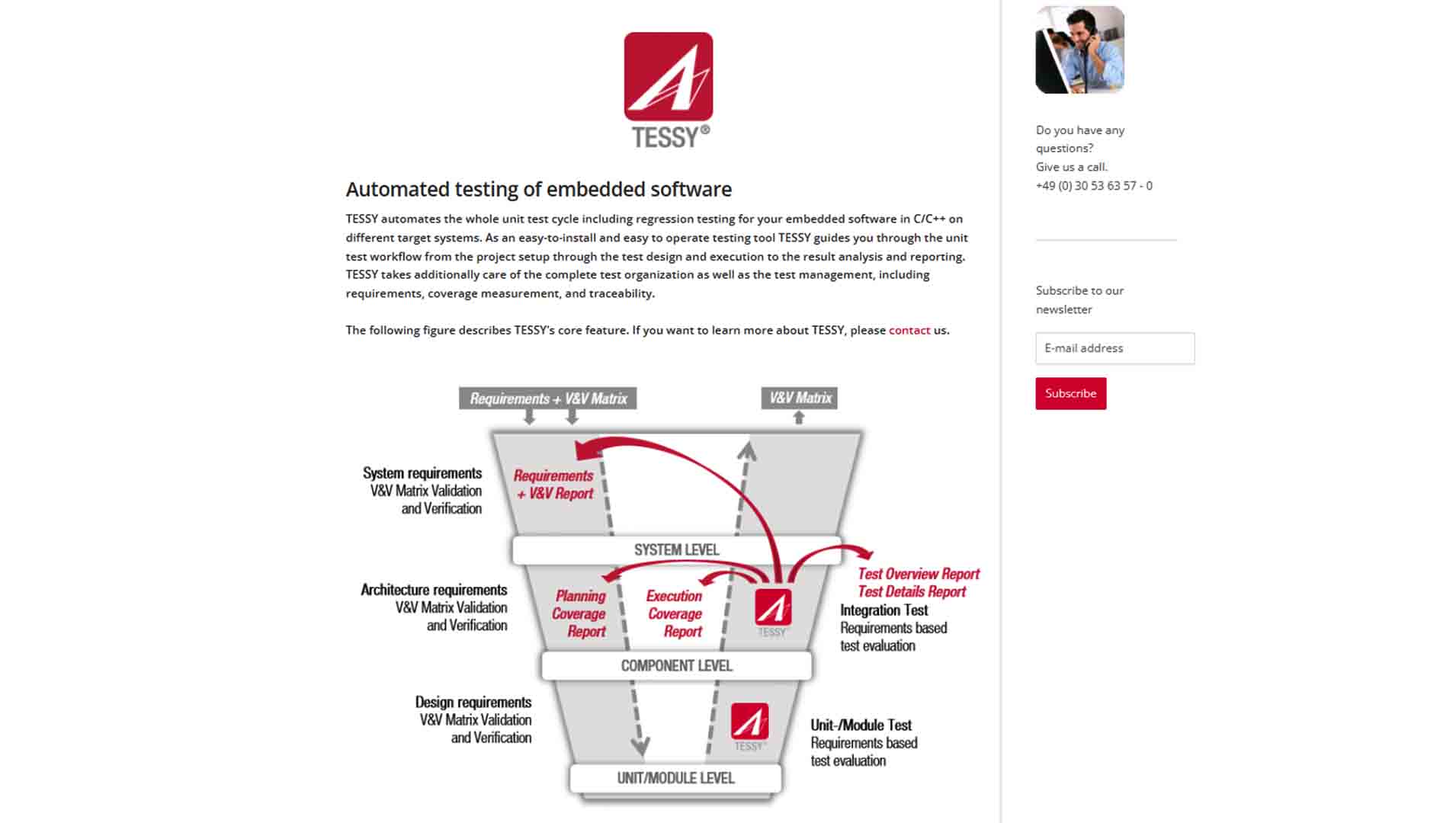
A solution for integration testing of embedded software, TESSY provides completely scalable and powerful testing. It aids in the identification of code coverage for software. It can also analyze the user interface of the functions of the software and can efficiently detect the variables used by functions. TESSY has incorporated CTE or Classification Tree Editor assisting in specifying a test case in a regulated and systematic manner. It performs 3 functions with great authenticity and value:
- Test Interface Editor(TIE),
- Test Data Editor (TDE), and
- Workspace.
TESSY supports code coverage with complete reliability and eliminates the need for any additional efforts. It can seamlessly support C and C++ programming languages. The test reports of integration testing run by TESSY are well-descriptive and insightful.
The integration test framework has the ability for variant testing, thereby emerging as an optimal solution for integration testing. The added ability to export or import data from excel makes sure it stays user-friendly.
8. Spring Test
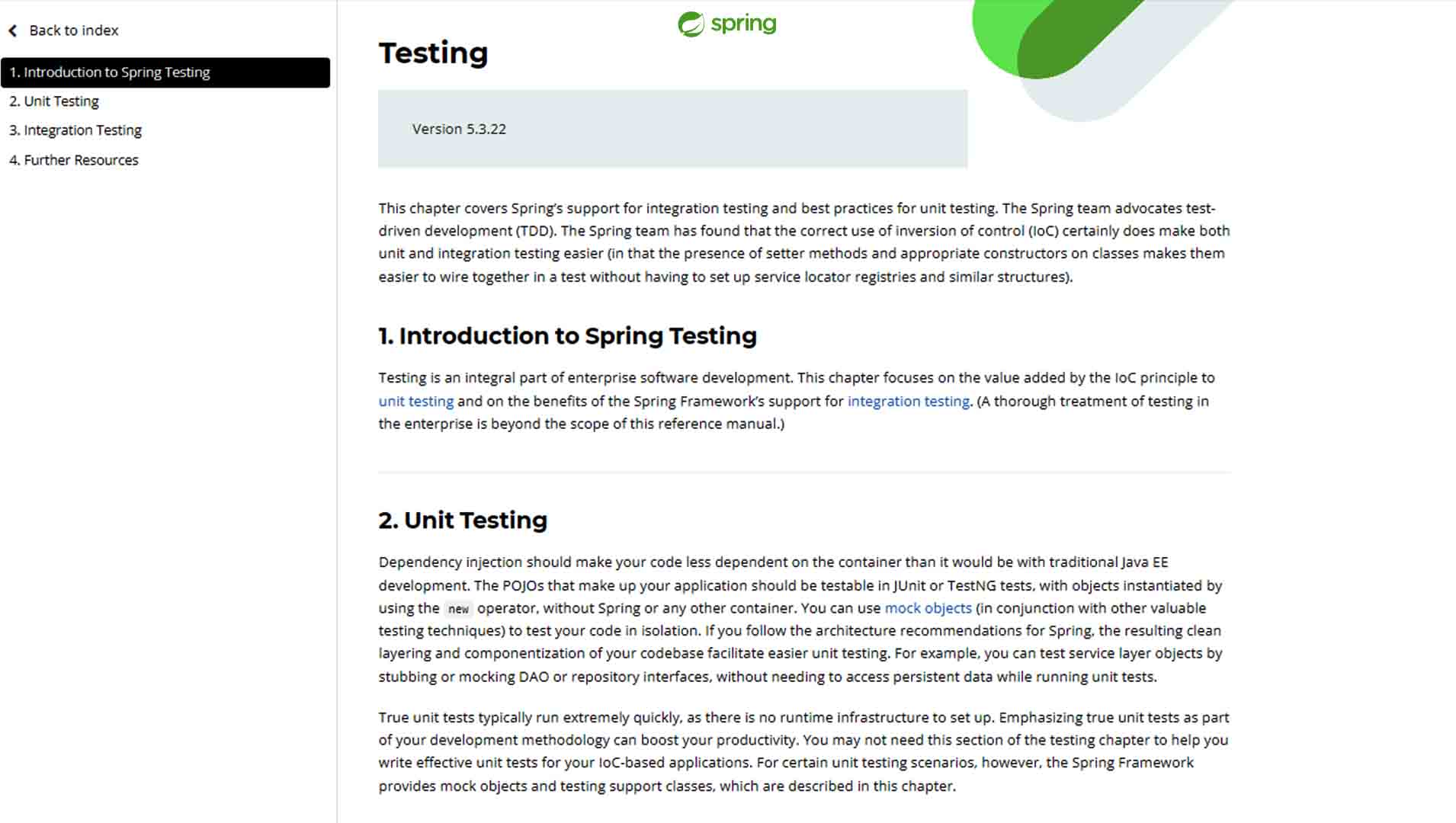
Spring Test is another reliable name among the best integration testing tools. It has been the choice of developers and programmers for a long time.
Benefits:
- Supports test auto-configuration.
- Enables code easily for unit and integration testing by using the dependency injection.
- Supports mocking objects rather than dependencies.
- Customizable primary configuration.
Spring Test offers a wide range of annotations and utilities to aid the process of software testing.
9. Validata MSG
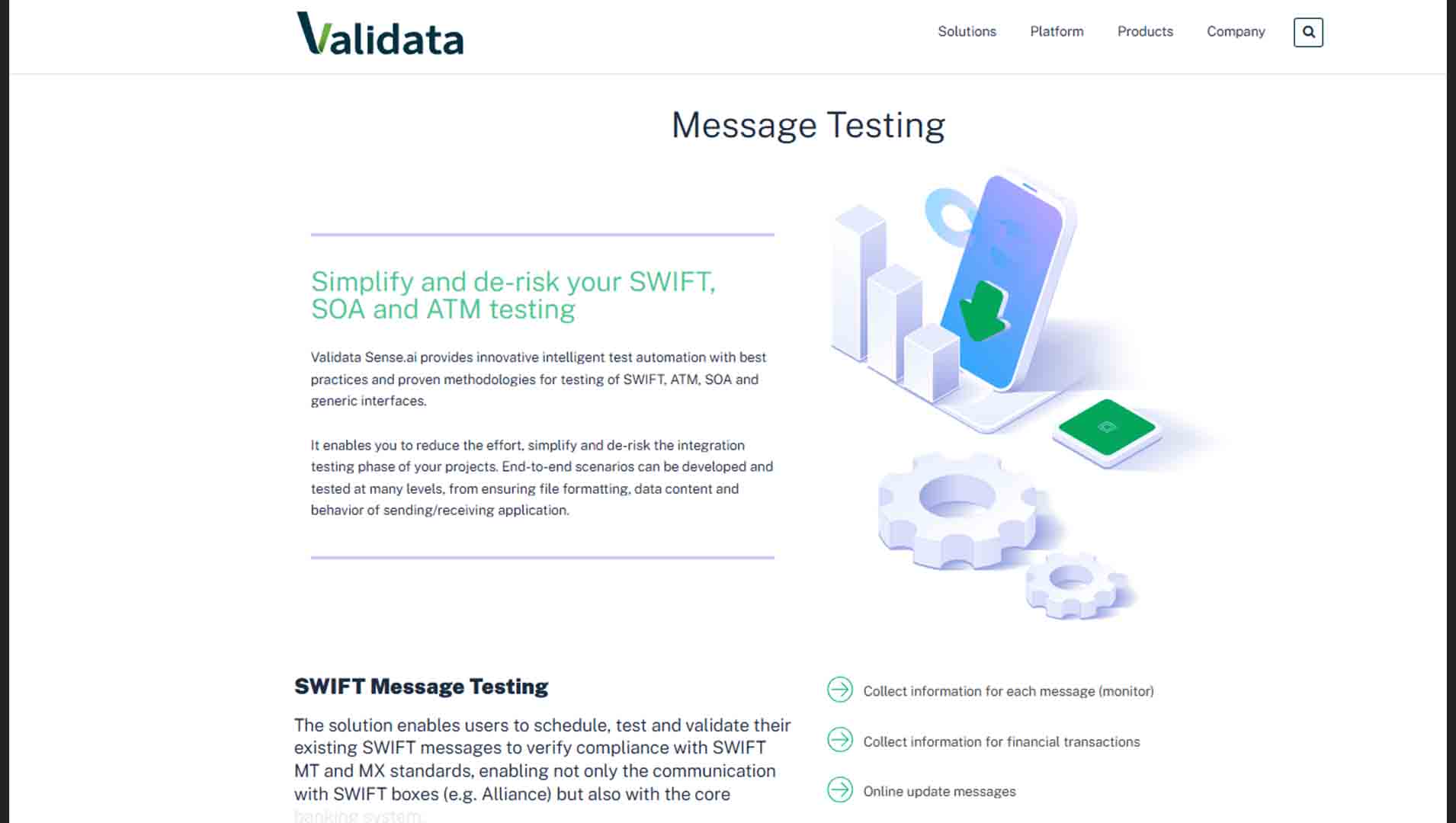
Validata Message Testing is a reliable and efficient solution for automated integration testing. It provides an automated testing framework and can be used to test SOA, ATM, SWIFT, and Generic interfaces. It makes integration testing an easy drill with unique features and reliable support.
This tool allows users to perform testing with minimal manual effort without compromising security and accuracy. It can aid in the end-to-end scenarios that can be developed and tested at different levels. It also ensures sending and receiving patterns of the software, data content, and whatnot! Validata MSG is integrated with HP ALM.
Moreover, it has a quality feature of reusability of scenarios that ensures significant help and assistance throughout the testing. It elevates productivity and stability during testing as well. Validata MSG has emerged as a cost-effective solution for businesses.
10. IBM-Rational Integration Tester
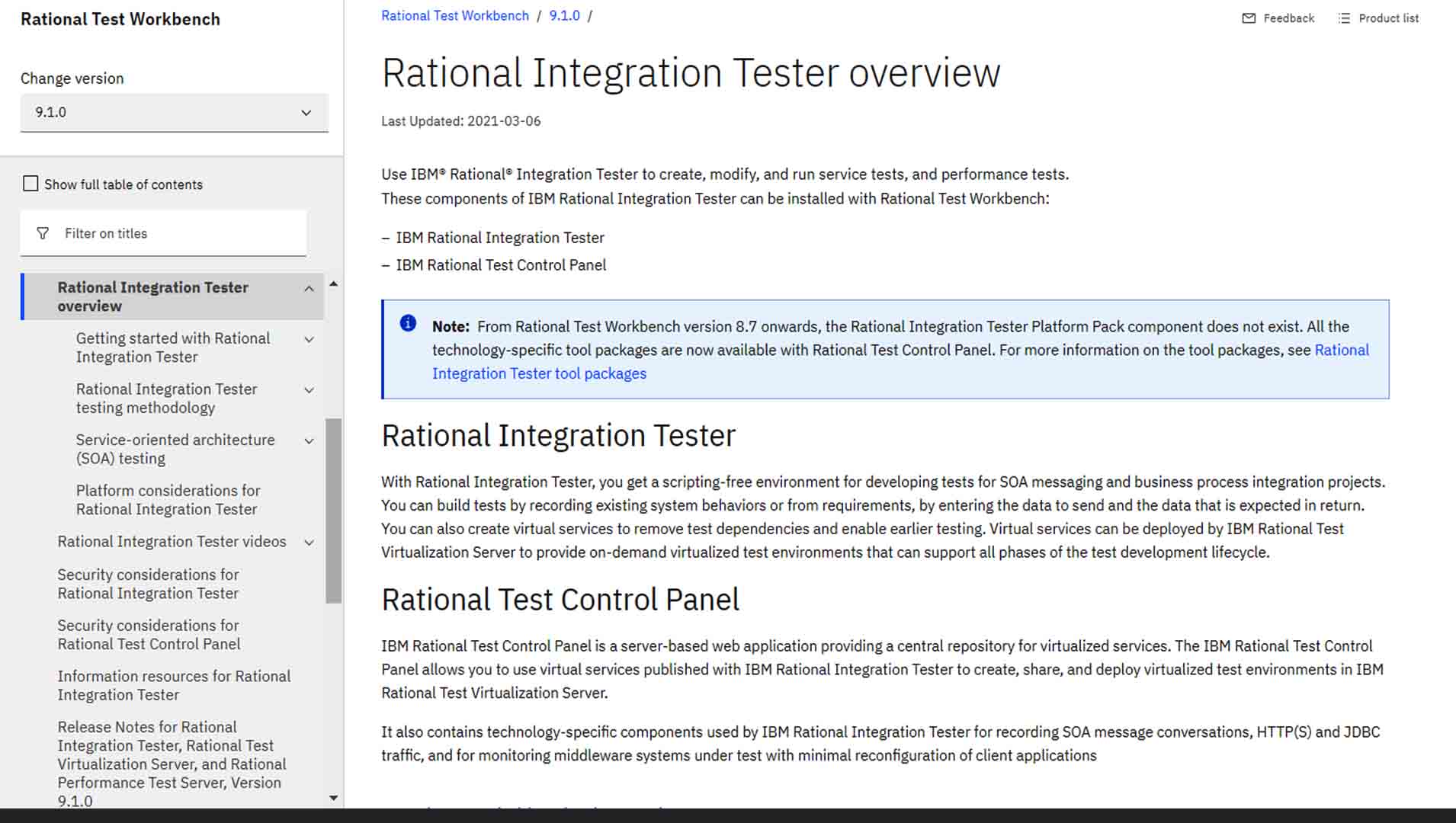
Earlier known as Green Hat, Rational Integration Tester has been owned by IBM since 2012. Since then, it has been delivering reliable and optimal solutions for automated integration testing. The tool works in a script-free environment and allows development for SOA messaging simply and easily. It curbs integration problems in software with the aid of agile and iterative development processes.
Benefits:
- It is a part of a rational test workbench.
- Code-free, reusable environment.
- Do not halt testing in the absence of components; they can reuse.
- Along with integration testing, it also provides regression and functional testing.
- Reduces and shortens the length of the testing cycle.
- Mitigates risks as it enables an agile and initiative development process.
- Removes test dependencies.
Wrapping it Up
No matter how simple or complex software is, its optimal performance, functionality, and stability will be accounted for by its modules. This makes integration testing a necessary step in any software development and testing process. One can consider an automated tool for the same. The right tool can elevate the speed, accuracy, and reliability of the testing process as well as provide insightful results. This gives programmers and developers an upper hand in ensuring the delivery of premium quality software.
People are also reading:
- What is Software Testing Life Cycle (STLC)?
- Types of Software Testing
- 10 Best Software Testing Tools
- Software Testing Interview Questions
- Best Cloud Testing Tools
- ETL Testing Tools
- Accessibility Testing Tools for Web Application
- Agile Testing Tools to Develop high Quality Software
- Mobile Application Testing Tools
- Penetration Testing Tools
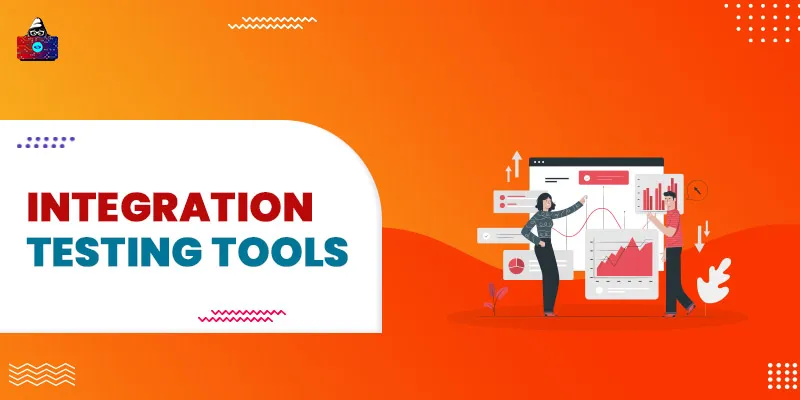


![What is Waterfall Model? [Phases, Pros, & Cons]](/media/new_post_images/Waterfall_Model.webp)
